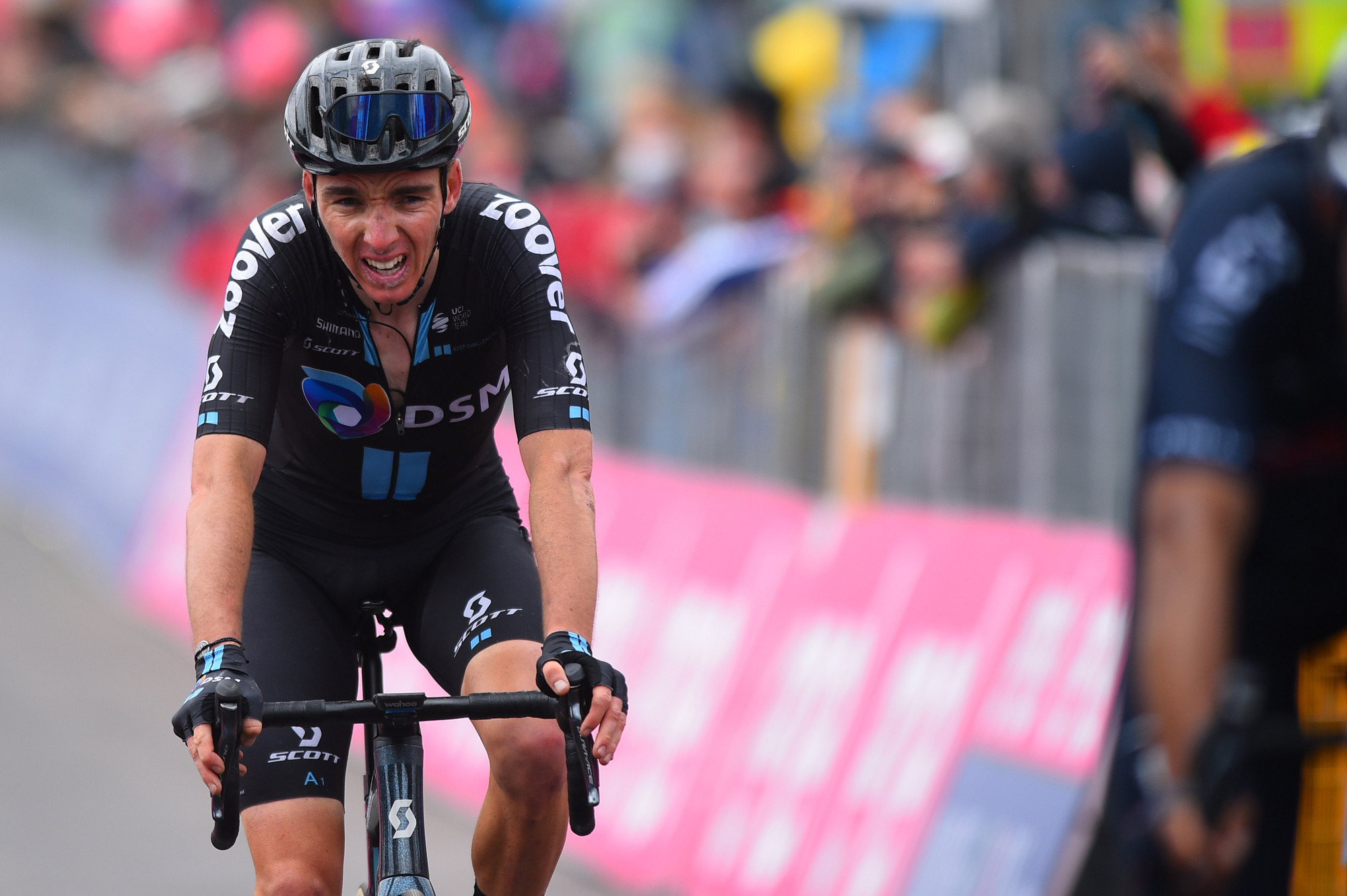Bardet: We need to ban substances that sit in the grey area
‘For me it always takes too long before we realise that we needed to be strict on certain points’ says French rider

Romain Bardet (Team DSM) has called on more to be done in relation to banning substances that he feels sit within the grey area of sporting performance and enhancement.
The Frenchman specifically named corticosteroids and ketones as two primary products that should be banned completely, while the climber has also voiced concern of the number of out-of-competition tests carried out since the outbreak of COVID-19 in 2020.
Speaking ahead of the recent Rouleur Live event in London, Bardet was asked about the anti-doping raid at the Tour de France in which Bahrain Victorious were the subject to intense scrutiny.
While no anti-doping charges have been filed, reports in France stated that three of the team returned samples that included traces of the powerful muscle relaxant Tizanidine.
The team initially denied using the product before releasing a second statement that didn’t deny the use of Tizanidine but did highlight that it wasn’t a prohibited drug.
Cycling has made steps to ban painkillers and other similar products in the past with Tramadol added to the prohibited list in 2019. It took several years and countless anecdotal accounts of the drug’s abuse before action was taken.
Bardet is reluctant to see another lengthy period develop when it comes to any such substances, whether they be painkillers, muscle relaxants or ketones – a highly controversial energy source that several WorldTour teams admit to using but Bardet, Team DSM and other members of the MPCC are strongly against.
Get The Leadout Newsletter
The latest race content, interviews, features, reviews and expert buying guides, direct to your inbox!
"As long as the rules are too permissive… that’s the problem," Bardet told Cyclingnews. "We’ve been talking about ketones for two or three years and the MPCC are pushing but other teams are still saying they will use it.
"It’s up to the anti-doping authorities to decide if it’s banned or not and that’s the problem because there’s this grey area. The laws are too permissive. We’re talking a lot about these substances but what we need to just do is prohibit them.”
“It’s tough for sure but it’s always part of cycling because we put a lot of focus on these matters,” he said, when asked if it was tough for a rider with an outspoken stance on doping and who had seen rivals operate in the grey area.
“That’s good that we put focus on it, and it’s also good that the media talks about it. For me, it always takes too long before we realise that we needed to be strict on certain points. Same with Tramadol.”
Bardet also raised concerns with the number of tests carried out during out-of-competition periods. He could only talk about his personal experience, and while anti-doping bodies these days take a far more targeted and intelligence-lead approach to testing riders, there has been an acknowledgment that during the peak of the pandemic drug testing dropped to a fraction of previous levels.
“There’s some work to be done,” Bardet said. “Especially with the controls. I think it’s dramatically dropped since Covid, and again I’m talking from my experience.
"If it’s the same for everyone then the sport needs to take more steps. With the suspicion and stuff that’s always been in cycling but more can be done to make the sport cleaner with things like more pressure with controls and more tests.”
The Frenchman pointed to one example in particular with riders and teams often using Teide in Tenerife as a training base. Testing is notoriously poor if not non-existent with riders who have complained in the past about the lack of controls taken at the location.
“Maybe outside of competition I’ve had three or four times, five maximum for the passport. I’ve had experience of having three or four weeks in Teide with no tests and there are 25 others guys there with no controls.
"I know it’s a lot of money to do but it’s what cycling needs. I’m confident that the guys running the anti-doping are still sharp and are really monitoring things and targeting. Overall, I felt the level of testing has dropped a bit.”
Daniel Benson was the Editor in Chief at Cyclingnews.com between 2008 and 2022. Based in the UK, he joined the Cyclingnews team in 2008 as the site's first UK-based Managing Editor. In that time, he reported on over a dozen editions of the Tour de France, several World Championships, the Tour Down Under, Spring Classics, and the London 2012 Olympic Games. With the help of the excellent editorial team, he ran the coverage on Cyclingnews and has interviewed leading figures in the sport including UCI Presidents and Tour de France winners.
